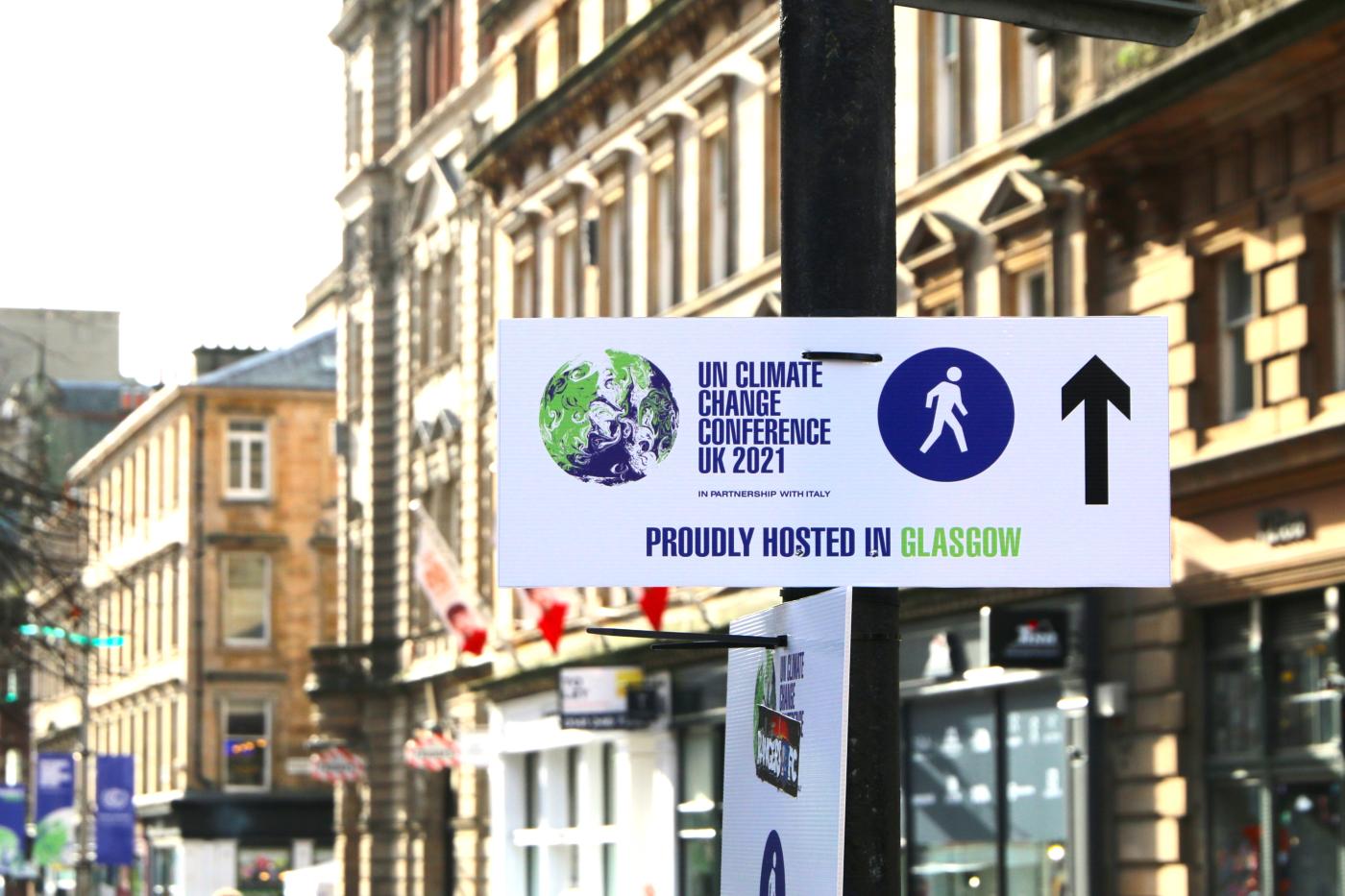It is here the “bla-bla-bla” goes on, as Greta formulated it. I have to show my badge one more time before entering the airport-like room for the next security check. When I finally get inside, the day as a World Council of Churches (WCC) delegate starts and it contains meetings, negotiations, side events, networking, planning and perhaps it is possible to squeeze in a few minutes to upload some stories on the World Student Christian Federation-Europe Instagram account. By the end of the day, I leave the Blue Zone. Again I am faced with the strange situation of passing through demonstrations, people holding signs for us leaving the Blue Zone to read, groups of cops and closed streets. I will cover my badge with my jacket this time as well and put it in my bag as soon as I leave the crowds.
Divided might be the correct term to describe my experience of being here at COP26 in Glasgow. I proudly represent my organisation, the World Student Christian Federation, and I am glad that the WCC gave me and the other delegates this opportunity. It is a way for us to network, learn and understand. We in the ecumenical group, consisting of Christians from a number of organisations and denominations, do our best to amplify the voices of those who are not able to be here and follow the negotiations, perhaps even affect one person here and there.
At the same time, feelings of frustration and desperation are constantly present. At least for me. I think of the people outside. I think of the people inside who desperately try to make their voices heard. I am here with a badge that says observer. I am blonde, white, blue-eyed, from a rich country in the North, not only can I understand English, I can speak it as well. This is what others see when I walk around in the Blue Zone and when I leave it. In this regard, I belong to the majority of the thousands of people in the Blue Zone. It is wrong that the representation is so disproportionate. There is no other way to put it. I am very aware of it. Perhaps that is one of the reasons why I feel I need to cover my badge as soon as I leave the Blue Zone. Am I ashamed that I am here when others clearly should be?
As a theologian, I seem to be unable to look through any other lens, or at least be completely free from a Christian and theological perspective. Walking around and following different events and negotiations, one thing has hit me, which makes it all surrealistic. Everyone, or at least almost everyone, can imagine the predicted future. It is what we do all the time. The future is death, darkness, chaos, catastrophes, devastation if we do not act. This we know. But this fact, this prediction, this future that we can imagine, is frankly treated like discussions on tax or any other political discussion. It is like no one emotionally can comprehend what is happening. The existential anxiety, like a dark hole deep inside us, tears us apart. The place of panic and pure fear. I know that many of us here, the Blue Zone, do know about that place, and have felt it and feel it when we read climate reports and see how the environment is already changing before our eyes.
But it is like too many have closed the door to that room, or never have opened it. I walk around with the feeling that rationality is the main character, or perhaps passivity or numbness. Or rather, it is like so many of us are carrying the feeling of frustration and desperation but somehow we lose track of that in the midst of negotiations, new technology and rationality. Sometimes I am afraid that those on the outside count me as one of those, those who do not act, who do not emotionally comprehend the climate crisis, the existential crisis. I think that is the reason for me to cover my badge: I do not want to belong to that group and I do not think I do.
I might be naive but I strongly believe in the power of the faith communities. We have a language and an understanding of the world that in many ways is a counterweight to the rational, political, technological and national world. We believe in solidarity and compassion, it is in our core. We see past borders and division. I am turning my existential anxiety into compassion and solidarity and action.





